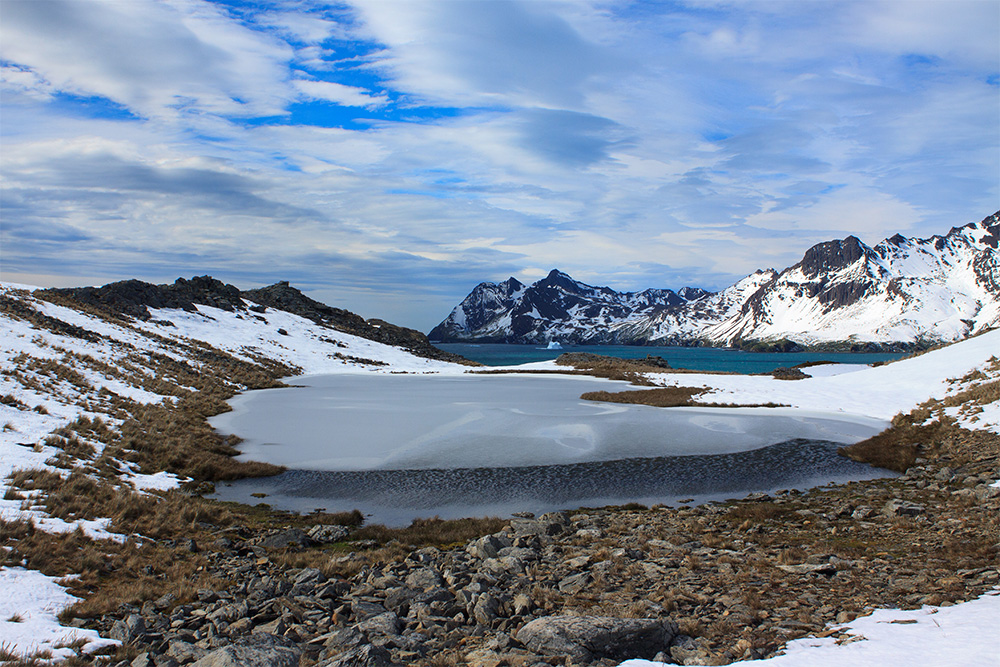December 4, 2024
The Ebiil Society: Champions of Palau
Ann Singeo, founder of our partner organization the Ebiil Society, shares her vision for a thriving Palau and a flourishing world of indigenous science!
We use cookies to help you navigate efficiently and perform certain functions. You will find detailed information about all cookies under each consent category below.
The cookies that are categorized as "Necessary" are stored on your browser as they are essential for enabling the basic functionalities of the site. ...
Necessary cookies are required to enable the basic features of this site, such as providing secure log-in or adjusting your consent preferences. These cookies do not store any personally identifiable data.
Functional cookies help perform certain functionalities like sharing the content of the website on social media platforms, collecting feedback, and other third-party features.
Analytical cookies are used to understand how visitors interact with the website. These cookies help provide information on metrics such as the number of visitors, bounce rate, traffic source, etc.
Performance cookies are used to understand and analyze the key performance indexes of the website which helps in delivering a better user experience for the visitors.
Advertisement cookies are used to provide visitors with customized advertisements based on the pages you visited previously and to analyze the effectiveness of the ad campaigns.
Looking to make an impact this Earth Month? Here’s how.

Three years ago, South Georgia Island, a remote and lush paradise for all kinds of wildlife, was declared completely free of invasive rats. Positioned only 800 miles southeast of the Falkland Islands, South Georgia is a nesting site and home for multiple species of birds including the South Georgia Pipit and various species of Penguin – King, Macaroni, and Gentoo.
Historically, South Georgia’s bird populations have evolved in the absence of predators like rats and mice. Nesting on the ground or in shallow burrows, they are easy prey and highly vulnerable to the presence of rodents. Initially introduced in the late 18th century by whalers, rats on South Georgia were extremely successful at exploiting these vulnerabilities, decimating species found nowhere else. Now, birds like the South Georgia Pipit are showing remarkable signs of recovery.

Restoring South Georgia was a massive undertaking. At over 100,000 hectares in size, South Georgia is eight times larger than the previous record holder for the largest island rid of invasive rats. However, it was not solely, South Georgia’s size that made the project so difficult. The island’s geology includes soaring, steep mountains and large slick glaciers, requiring extensive planning and meticulous implementation to ensure rats would be removed from the entire island.

South Georgia is part of the British Overseas Territories—14 remote territories, scattered around the world’s oceans. Estimates suggest they include as much as 94 percent of Britain’s endemic species. Unfortunately, the vast majority are threatened by invasive rats and mice. The short film, ‘Saving Britain’s Islands,’ based on the work of Joshua Powell, a Ph.D. student and Churchill Fellow for island conservation policy, highlights the pioneering roles of islands around the world that are conducting rat removal projects and leading the way in conservation success. The film explores and emphasizes how conservation techniques can be used to help protect biodiversity globally and specifically in the UK Overseas Territories.
South Georgia shows what can be achieved if we are to put funding and support into protecting these incredibly important places,” says Powell.
The success of the world’s largest rat removal project on South Georgia is a bright spot for the world of island conservation, but the work is not done yet. Research indicates that invasive rodents have invaded an estimated 90 percent of the world’s island chains, leaving a lot of work yet to be completed. Next, the Royal Society for the Protection of Birds, Tristan da Cunha Government, Island Council and community, with support from Island Conservation are tackling the restoration of Gough Island, where invasive mice are threatening highly Endangered Albatross.
Featured Photo: Giant Petrel soars over the ocean surrounding South Georgia Island. Credit: David Will/Island Conservation
Check out other journal entries we think you might be interested in.
Notifications